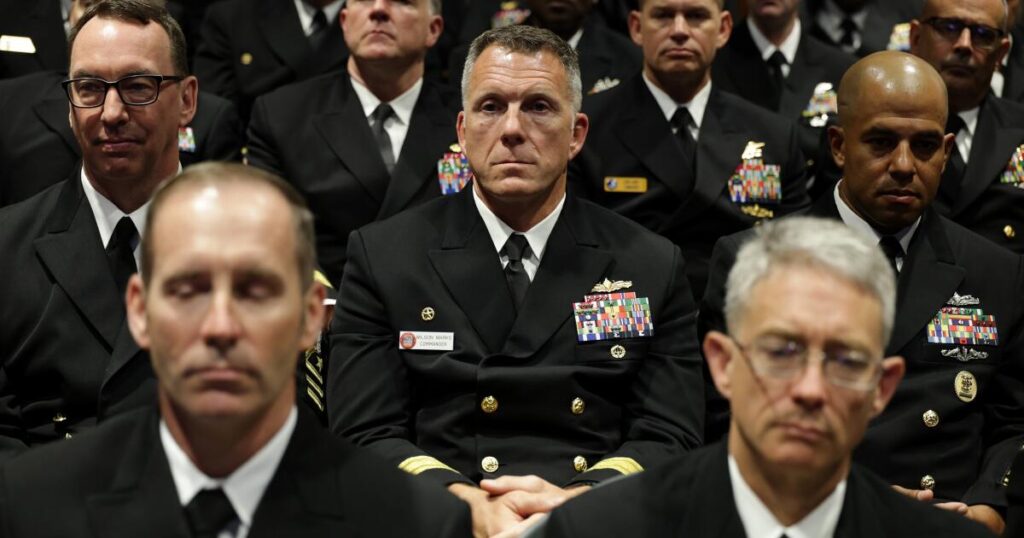If killing men in boats at sea were truly legal, we wouldn’t need a secret memo to say so.
According to the Washington Post, the Justice Department’s Office of Legal Counsel quietly assured the Defense Department last week that U.S. service members cannot be prosecuted for the more than 20 “boat strikes” that have killed at least 80 people in the Caribbean and Eastern Pacific. A memo like that does not speak the language of lawfulness. It speaks the language of guilt management and accountability avoidance. When a government must preemptively promise its warriors immunity, it is conceding that it has crossed a line.
This is not an isolated excess. It is the continuation of a moral collapse that has unfolded, memo by memo, across decades of American warfare. The George W. Bush administration wrote the first of these permission slips when its lawyers redefined torture as “enhanced interrogation.” The Obama administration rescinded those opinions — then used the same machinery of justification to rationalize drone strikes, including one that killed an American citizen in 2011 and another that killed his 16-year-old son. The party in charge may change, but the grotesque logic endures: If you can’t make it right, make it legal.
President Trump and Defense Secretary Hegseth have brought that logic to the open sea. Missiles fired from American aircraft are obliterating small open-hulled speedboats suspected of carrying drugs. There are no declarations of war, no charges, no trials. The Pentagon insists these killings are “lawful orders,” vetted by lawyers “up and down the chain.” That line should chill anyone who has ever worn a uniform. No law of armed conflict permits execution without combat. No one in those boats justifiably can be labeled a combatant. There is no moral universe in which vaporizing human beings in the middle of the ocean is an act of justice.
Our allies see what we refuse to admit. The United Kingdom reportedly stopped sharing intelligence for these missions, unwilling to be complicit in acts that violate international law.
Inside the military, the corrosion runs deeper than any policy debates that surround it. Officers trained through their careers on principles like proportionality and restraint have outsourced their conscience to legal process. The logic goes that if the lawyers have signed off, ethics need no longer enter the equation. The “legal” justification acts as a sort of moral anesthesia. But every order carried out under that logic erodes the institution that gives it — and the soul of the person who obeys it.
The phrase “lawful orders” has become the military’s institutional sedative. We repeat it to absolve ourselves of thinking, to pretend that justice can be delegated to paperwork. No matter how many knots a lawyer ties themselves in to get there, legality is not legitimacy. A classified memo cannot wash blood from the conscience of an institution once defined by its restraint. The rule of law that once distinguished American power from the impunity of tyrants has been deliberately dismantled, one opinion at a time.
Most officers can tell the difference between orders that uphold our values and those that contradict them. They are not ignorant — they’ve simply been given permission to look away. Concocted legality offers cover, and the system rewards those who take it. For years the military has promoted compliance and punished candor, building a culture that confuses loyalty with agreement and obedience with virtue. Now the nation expects that same culture to stand up to a president willing to order the unlawful. It won’t. That’s the danger we created. A system built for obedience cannot summon courage on command. That should terrify everyone.
For those who took comfort in the generals’ stoicism during Trump’s September speech at Quantico, believing it reflected discipline or restraint, understand this: That silence meant something else entirely. It means they will go quietly. They will hold their noses and execute illegal orders — orders to kill, no less — rather than challenge the system that issues them. It is surrender disguised as order.
Expecting more from those who lead the nation’s military isn’t unfair — it’s the job. Military leaders swore an oath to defend the Constitution, not to obey a man. We don’t talk about it much, but that oath is a life-and-death commitment. It carries the burden of restraint and the courage to say no when it matters most.
What makes a nation worth serving is not its might but its willingness to restrain it. The rule of law made our power credible and our service honorable. We are losing that not through defeat, but through surrender — one quiet act of compliance at a time. No memo can make that right.
Jon Duffy is a retired Navy captain. His active duty career included command at sea and national security roles. He writes about leadership and democracy.
The post Do our military leaders have the backbone to disobey illegal orders? appeared first on Los Angeles Times.




